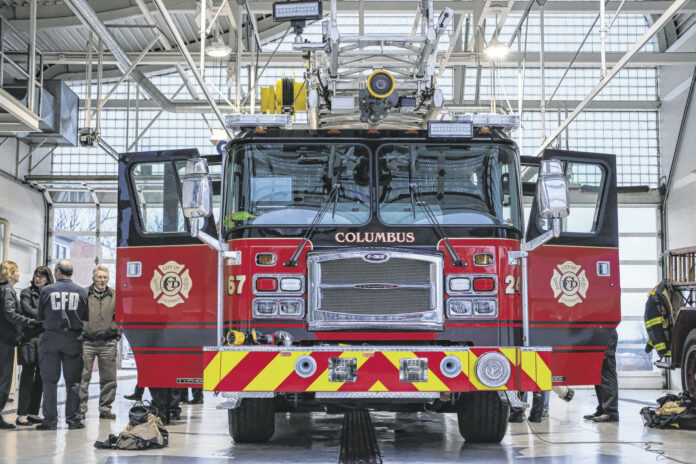Columbus is seeking to increase the amount of money earmarked for overtime wages at two city departments where workers are putting in more hours than expected largely due to the pandemic and a nationwide struggle to fill open positions.
The Columbus City Council has unanimously passed on first reading an ordinance that would amend the 2021 city budget to include an additional $40,000 for unplanned overtime at the Columbus Fire Department and another $25,000 for overtime wages at Columbus Transit.
Overall, the amendment would increase the overtime budget at the fire department from $190,000 to $230,000 this year. At Columbus Transit, the overtime limit would increase from $44,649 to $69,649.
City Director of Finance, Operations and Risk Jamie Brinegar said both departments have already reached the overtime limits approved in the 2021 budget and “within the next month we could probably go over those amounts.”
However, both departments already have enough money in their personal services budgets to cover the increase in overtime, but the city council and Indiana Department of Local Government Finance need to sign off on the changes before the funds can be reallocated, Brinegar said.
“We’ve got the money within the budget, so we’re not asking for additional money overall,” Brinegar said. “It’s just money for that specific line (of the budget) that will transfer from another line. But because it has to do with payroll, we delineate what those amounts are and we have to state when we’re changing those for (the state government).”
Currently, overtime wages at the two departments are on pace to reach their highest levels since at least 2019, according to city records.
As of Sept. 30, unplanned overtime wages at the Columbus Fire Department had reached $167,780 — nearly twice the amount incurred during the same period in 2019, when unplanned overtime was $86,066, according to city records.
Overtime wages at Columbus Transit had reached $42,362 at the end of September, about 1.5 times higher than during the same nine-month period in 2019, when overtime wages totaled $26,742.
City officials largely attributed the increase in overtime needed at the two departments this year to the pandemic, among other things.
The fire department also has been impacted by ongoing training and an increase in work-related injuries that have required staff to miss work, causing other employees to accumulate overtime hours to fill shifts, Brinegar said.
Columbus Transit has been struggling to fill open positions amid a nationwide shortage in bus drivers and has had to resort to paying current drivers overtime to avoid interrupting the city’s bus service.
“Due to this staff shortage and the goal of maintaining all bus routes, the department has had to rely on overtime for its drivers in order to maintain all routes,” Brinegar said in a memo to city council members.
A second reading of the ordinance is tentatively scheduled for Nov. 2. If the ordinance is passed on second reading, the changes will be sent to the Indiana Department of Local Government Finance for approval, Brinegar said.





